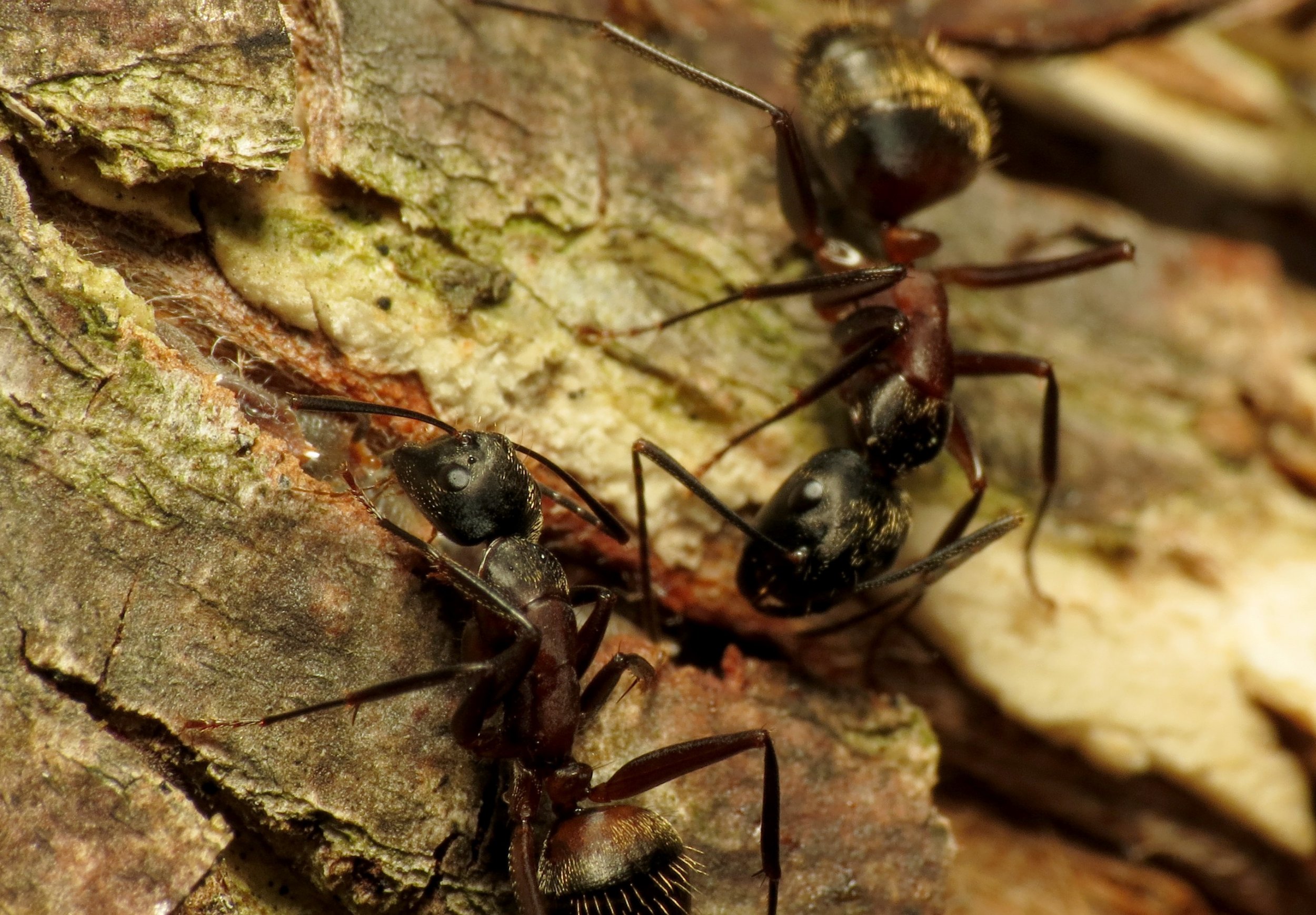
Carpenter ants appear to have a hard time figuring out when one of their own is infected with a parasite that will eventually make it kill itself. Researchers from Pennsylvania State University published their findings February 23 in PLoS One.
Turns out ants are really bad at picking up on nestmates infected with this particular fungus. They didn't attack infected ants—in fact, they shared food with them instead. Infected ants did cluster more toward the entrance to the colony, which might have meant that they were being excluded more than usual.
If you don't quite get why this is a problem worth studying, consider a zombie apocalypse. If your entire social structure is built on the idea that you should help people out, but your neighbor is actually a zombie—even a friendly zombie that might not eat your brain—then you're undercutting yourself. You're helping a zombie instead of a non-zombie in your community.
Ideally, you figure out that your neighbor is a zombie and act accordingly. That's what bees do when others in their hive are infected with something called deformed wing virus, the paper notes. The same is true for termites. "A lot of the literature has focused on this idea of social immunity—suggesting that ants are very good at detecting sicknesses in the nest and they act aggressively toward illness and that that's how they maintain healthy and large colonies," behavioral ecologist and study author Emilia Solá Gracia told Newsweek.
To test this idea, Solá Gracia and her colleagues took about 100 carpenter ants and created three colonies. About a third of each of the ants were infected with a parasite called Ophiocordyceps kimflemingiae.
This kind of fungus can infect ants that leave the nest and will linger and grow in an ant's body for up to three weeks. Then it makes the ant go outside the nest again, bite into vegetation and release the fungus. "The parasite grows out of its head," Solá Gracia said.
A previous study by another Penn State group found that this fungus works by acting on the ants' muscle fibers but leaves the brain alone—so, not truly a zombie-spawning spore. Go with it anyway; after all, it's often called the "zombie ant fungus."
You can't ask an ant if it thinks its nestmate is a potential zombie. But you can watch to see if it attacks a nestmate, doesn't share food with a nestmate, or stays away from a nestmate—so that's what these scientists looked for using an infrared-enabled GoPro camera on top of the colony.
"As soon as the parasite is outside of the ant's body, the ants are very good at detecting the parasite and killing it, for the most part. There, they're very efficient,"Solá Gracia noted. "But they're not as efficient when the sickness is developing or the fungus is developing inside of the ant."
However, this experiment is still on the smaller side of things. (That's in part because Solá Gracia watched thousands of hours of videos—by herself.) "In a perfect world, this would be a larger sample size and I would still have the large amount of observations, but I'm only one human." However, she noted, the message from the data is still pretty clear. "We didn't sense, behaviorally, that they can detect infection."
Uncommon Knowledge
Newsweek is committed to challenging conventional wisdom and finding connections in the search for common ground.
Newsweek is committed to challenging conventional wisdom and finding connections in the search for common ground.
About the writer
Kate Sheridan is a science writer. She's previously written for STAT, Hakai Magazine, the Montreal Gazette, and other digital and ... Read more
To read how Newsweek uses AI as a newsroom tool, Click here.








